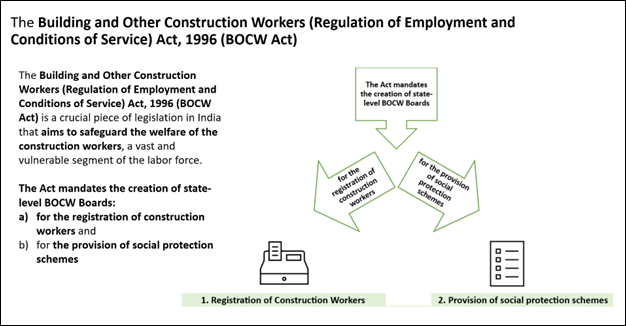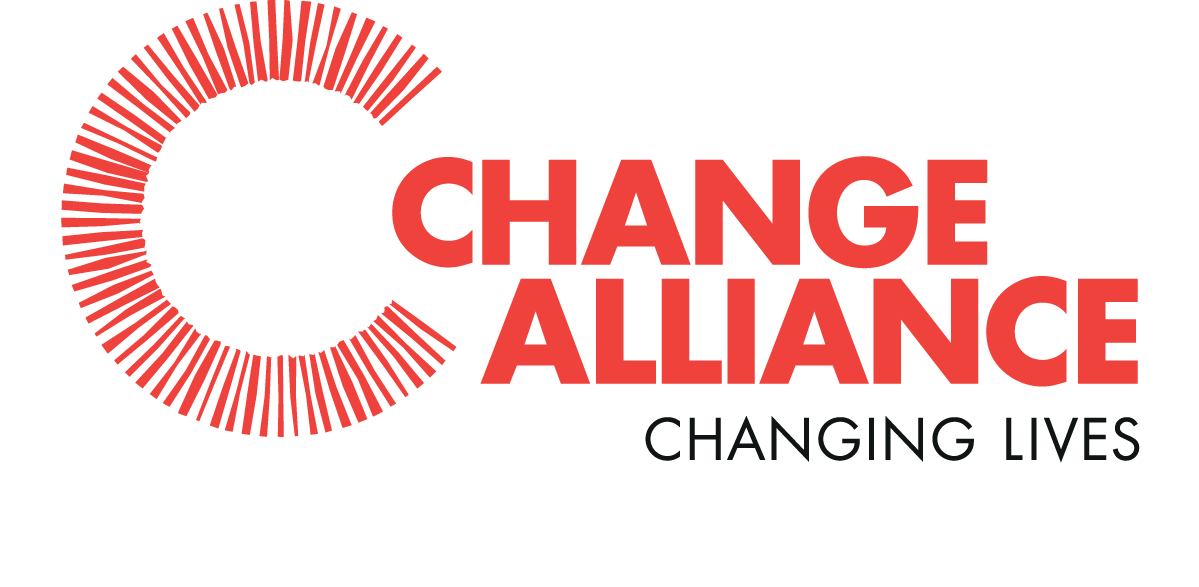The project aimed to comprehensively assess the challenges faced by construction workers in accessing social protection schemes as mandated by the Building and Other Construction Workers (BOCW) Act through a study conducted in Jharkhand.
Assessment of Board of Construction Workers (BoCW) and Issues of Migrant Construction Workers in Accessing to Social Protection Schemes in Jharkhand
Key Highlights:
- Feedback was gathered from 88 individuals, including stakeholders, construction workers, and field staff, to understand barriers and identify actionable solutions.
- The study employed Key Informant Interviews (KIIs), In-Depth Interviews, and Focus Group Discussions (FGDs) to uncover systemic gaps and worker experiences.

Methods of Inquiry for the study:
- Key Informant Interviews (KIIs): Conducted with 20 stakeholders, including government officials, contractors, and CSOs.
- In-Depth Interviews: Engaged district coordinators and field staff from Jan Sahas to dive deeper into ground-level challenges.
- Focus Group Discussions: Held six FGDs with construction workers, both those with and without BOCW cards, to identify their unique challenges.
Key Preliminary Findings:
- Awareness Gap: Many workers are unaware of the benefits of the BOCW card.
- Limited Outreach: Programmatic initiatives have not adequately reached a significant portion of construction workers.
- Dependency on Intermediaries: The shift to online systems have increased worker reliance on intermediaries, leading to exploitative practices like charging high commissions.
- Role of CSOs: Civil society organizations play a critical role in building awareness and facilitating access to schemes.
Framework for Action:
To address these challenges, the report recommends:
- Intensive Awareness Drives to educate workers on BOCW schemes.
- Streamlining Processes for easier registration and application.
- Transparency and Accountability in system operations.
- Worker-Centric Approaches that prioritize their needs and inputs.
- Improved Collaboration and Coordination among stakeholders.
- Technology Access Support to help workers navigate online systems.
- Data-Driven Decision-Making to monitor and optimize program impact.
Final Report Included:
- A detailed overview of the BOCW Act and Welfare Board.
- Comprehensive study methodology and stakeholder insights.
- Key findings and actionable recommendations, supported by case studies and a proposed framework for action.
This project by CAPL delivered with the support of Jan Sahas Foundation is a testament to our commitment to empowering construction workers and improving their access to essential social protection schemes, ensuring their rights and welfare are prioritized.
